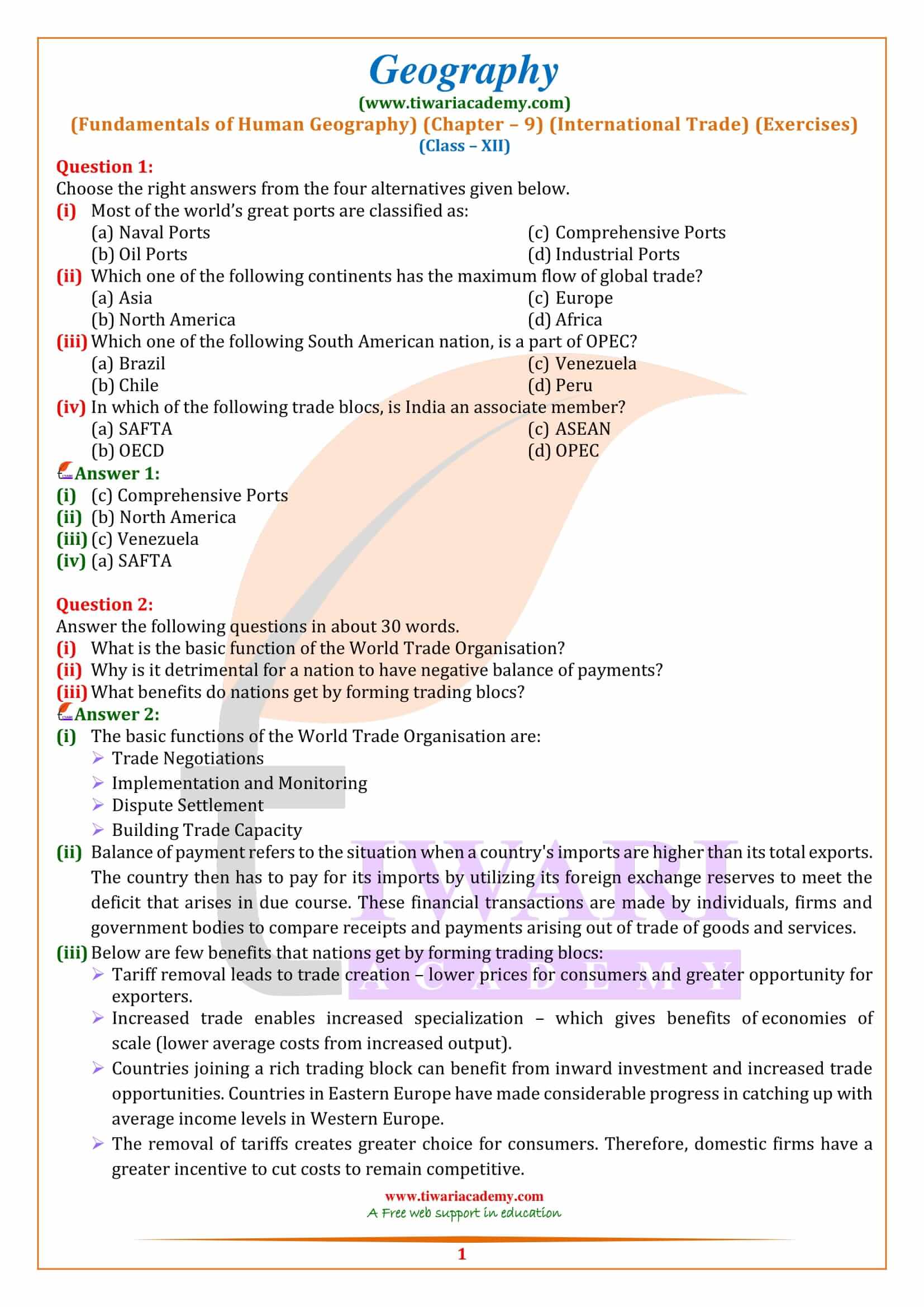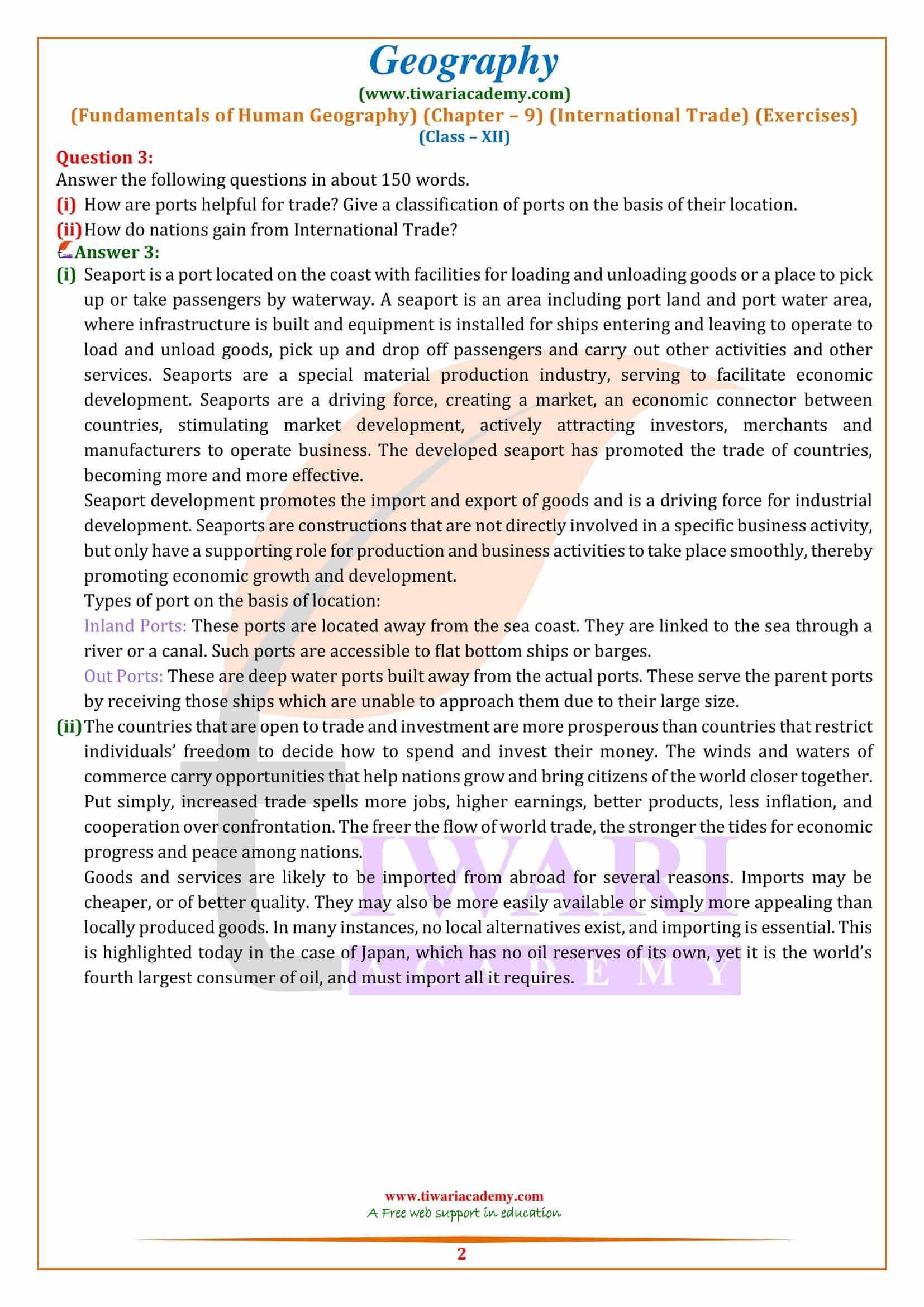NCERT Solutions for Class 12 Geography Chapter 9 International Trade in English and Hindi Medium part 1 Fundamentals of Human Geography is updated for session 2025-26. Get here class 12 Geography unit 3 chapter 9 MCQ and extra question answers to prepare school tests and board exams.
NCERT Solutions for Class 12 Geography Chapter 9
Class 12 Geography Chapter 9 International Trade Question Answers
What is the basic function of the World Trade Organisation?
The basic functions of the World Trade Organisation are:
- Trade Negotiations
- Implementation and Monitoring
- Dispute Settlement
- Building Trade Capacity
Class 12 Geography Chapter 9 MCQ
Most of the world’s great ports are classified as
Which one of the following continents has the maximum flow of global trade?
Which one of the following South American nation, is a part of OPEC?
In which of the following trade blocs, is India an associate member?
Why is it detrimental for a nation to have negative balance of payments?
Balance of payment refers to the situation when a country’s imports are higher than its total exports. The country then has to pay for its imports by utilizing its foreign exchange reserves to meet the deficit that arises in due course. These financial transactions are made by individuals, firms and government bodies to compare receipts and payments arising out of trade of goods and services.
What benefits do nations get by forming trading blocs?
Below are few benefits that nations get by forming trading blocs:
- Tariff removal leads to trade creation – lower prices for consumers and greater opportunity for exporters.
- Increased trade enables increased specialization – which gives benefits of economies of scale (lower average costs from increased output).
- Countries joining a rich trading block can benefit from inward investment and increased trade opportunities. Countries in Eastern Europe have made considerable progress in catching up with average income levels in Western Europe.
- The removal of tariffs creates greater choice for consumers. Therefore, domestic firms have a greater incentive to cut costs to remain competitive.
How do nations gain from International Trade?
The countries that are open to trade and investment are more prosperous than countries that restrict individuals’ freedom to decide how to spend and invest their money. The winds and waters of commerce carry opportunities that help nations grow and bring citizens of the world closer together. Put simply, increased trade spells more jobs, higher earnings, better products, less inflation, and cooperation over confrontation. The freer the flow of world trade, the stronger the tides for economic progress and peace among nations.
Goods and services are likely to be imported from abroad for several reasons. Imports may be cheaper, or of better quality. They may also be more easily available or simply more appealing than locally produced goods. In many instances, no local alternatives exist, and importing is essential. This is highlighted today in the case of Japan, which has no oil reserves of its own, yet it is the world’s fourth largest consumer of oil, and must import all it requires.



